Do you also wonder if medication is the only way to treat ADHD? Think again – there are effective, non-medication ways to treat ADHD, and help children succeed!
Being a parent or a caretaker of a child with ADHD, the journey of how to help a child with ADHD without medications or relying on prescriptions can be challenging, but the right approaches and effective strategies can prove to be helpful for both the child and the parent.
From structured routines to online interactive games, non-medication approaches promise to meet the unique demands of children with ADHD.
Before exploring the natural, and effective non-medication approaches that can significantly impact your child’s learning and focus, it’s important to have a basic understanding of ADHD, and its common symptoms.
Understanding ADHD:
What is ADHD:
ADHD, or Attention-Deficit/Hyperactivity Disorder, is a common neurodevelopmental condition that impacts an individual’s ability to focus, sit still, and control impulses. ADHD doesn’t refer to a lack of intelligence or discipline but to a unique way of brain processing information and reacting to different situations. For parents exploring how to help a child with ADHD through effective ways, understanding the symptoms is the initial step in giving the right support.
Common Symptoms in Children with ADHD:
Children with ADHD often show behaviors that can significantly impact their learning, their social interactions, and day-to-day life activities. The common symptoms of ADHD involve:
- Inattention: Struggle to stay focused while completing tasks.
- Hyperactive: Constantly moving, fidgeting, or struggling to stay/sit still.
- Impulsivity: Acting rapidly without thinking, interrupting others, or struggle waiting.
- Forgetfulness: Often missing details, forgetting tasks, or losing things.
- Unorganized: Struggle with organizing things, and keeping track of tasks.
Some Non-Medication Approaches to help a child with ADHD:
When exploring how to help a child with ADHD without medication, several practices prove to be quite beneficial when incorporated into daily life. Here are some effective strategies or approaches that help in disciplining a child with ADHD and handling challenges efficiently.
A Structured Routine:
Structure helps children with ADHD feel more focused and secure, and a structured, consistent daily routine is an essential approach to implement. It helps them relax, improves concentration, and allows children with ADHD to keep track of tasks smoothly. The daily routine tasks like going to bed, waking up on time, and brushing their teeth first thing in the morning help them become disciplined.
Physical Activities:
Exercise is an excellent way to channel extra energy, boost mood, and improve concentration. Physical activities like swimming, dancing, or cycling can help manage hyperactivity in children with ADHD, build confidence, and allow them to focus on a single activity at a time.
Mindful Practices:
Simple, mindful practices like deep breaths, yoga, and meditation can help reduce impulsive behaviors in children with ADHD, and improve their ability to focus. These calming practices make children learn to pause, reflect, and approach situations more calmly and thoughtfully.
A Balanced Diet:
Diet affects an individual’s physical and mental health significantly. For children with ADHD, a balanced diet containing nutrient-rich foods is essential for brain health. Cutting off sugar, and incorporating food with protein, whole grains, and omega-3s helps maintain energy levels and improve focus, providing mental clarity throughout the day.
Behavioral Therapy:
Behavioral therapy is highly effective in how to help a child with ADHD by teaching them essential skills for managing behavior and setting positive goals. Seeking expert advice from a therapist also helps parents learn and implement effective strategies with ADHD children.
Online Interactive Games:
Online, interactive games are valuable and play an important role in developing cognitive and motor skills in children with ADHD. Companies like WonderTree offer customized games crafted especially for children with ADHD, making learning fun and effective. Wondergames keep children engaged while building several skills in a positive environment.
How to Calm a Child With ADHD Without Medication?
If your child is showing any ADHD symptoms like hyperactivity or impulsivity, and you’re unaware of how to calm a child with ADHD without any medication, here is the solution!
The non-medication strategies to try when calming a child with ADHD involve mindful practices like deep breathing and yoga, structured routines, and including physical activities into the child’s daily routine. Therapeutic online games like Wondergames also help in reducing stress, boosting mood, and improving focus as it is a constructive way for children to channel their energy.
How to Discipline a Child with ADHD:
Discipling a child with ADHD requires nothing but patience, consistency, and positive behaviors and approaches from parents or caretakers. Focus on setting clear goals and simple rules, following structured routines, using reward systems, and calmly addressing their negative emotions and behaviors. Avoid giving harsh or strict punishments, instead try using gentle reminders and positive actions to help them understand and remember rules.
Why are Non-Medication Approaches Preferred?
Many parents or caretakers prefer non-medication approaches for their children with ADHD as they focus on natural methods that address the root causes of underlying behaviors. These approaches like structured routines, mindful practices, and behavioral therapies, help children develop skills naturally. Non-medication strategies can be empowering and lower the dependence on medications, making them an ideal choice for many parents on how to help a child with ADHD.
AAP Recommendations:
For Children Under Age 6:
The American Academy of Pediatrics (AAP) advises non-drug interventions including behavioral therapies and parent training as the first step.
For Children Over 6:
A combination of strategies, possibly with medications, is recommended.
However, some parents or caretakers prefer non-medication approaches due to inaccessibility issues, and possible side effects. These non-medication approaches often improve symptoms, and reduce the requirement for medication.
How WonderTree’s Online Games are Helpful for Children with ADHD:
Improves Focus and Attention:
WonderTree’s online games are a great source of learning and skill development for children with ADHD, as they are designed specifically to be engaging and interactive enough to improve their focus. These games increase their attention span for longer periods by engaging them in entertaining activities in games like moving objects, tracing, or catching materials that need them to follow instructions and rules properly. Wondergames help children
Encourages Cognitive and Motor Skills:
WonderGames uses motion-based play to combine cognitive tasks with physical activity, helping to develop motor and cognitive skills in children. Engaging in games involving challenges like problem-solving, hand-eye coordination, and memory, allows children to boost their reaction time, decision-making, and developing motor skills—all while having fun in a supportive environment.
Builds Confidence:
Small wins in WonderTree’s games can significantly boost the self-confidence of children with ADHD. With spontaneous feedback and reward systems, these games are designed with positive reinforcement, making kids feel proud of their progress and achievements. These small successes get progressive over time and help build confidence in children with ADHD.
Try Scoop'd & Bubble Pop
To Boost Focus in Your Child! 


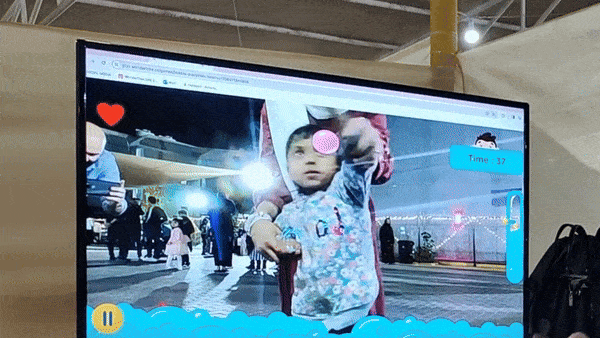
WonderGames for Children with ADHD:
If you’re seeking interactive online games for children with ADHD, here are the top Wondergames crafted thoughtfully and lovingly for them.
SCOOP’D:

TRY FOR FREE
Ready to run your very own ice cream shop? Step into your ice cream shop and catch falling scoops with a virtual bucket! But look out for the red troublemaker balls as you master the art of ice cream scooping.
BUBBLE POP:

TRY FOR FREE
Welcome to the world of bubbles! Pop as many bubbles as you can before time runs out, but beware of the sneaky fireballs and bombs that could burst your fun!
BRAIN GRUB:
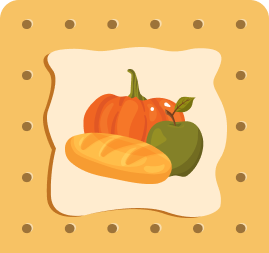
Boost your memory skills! Take a test of your memory by flipping cards and finding matching pairs. The more matches you make, the higher your score!
URDU ALPHABET TRACE:
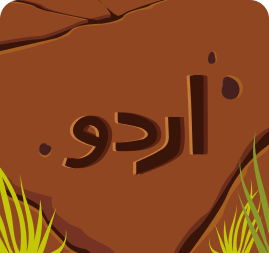
Learning Urdu has never been this easy! Trace Urdu letters with your hand and enjoy fun animations while learning their correct pronunciation.
SMALL ALPHABET TRACE:
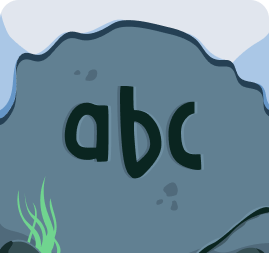
Master the Small Alphabet like an expert in no time! Trace and learn the small alphabet with interactive animations that make letter recognition easier than ever.
CAPITAL ALPHABET TRACE:
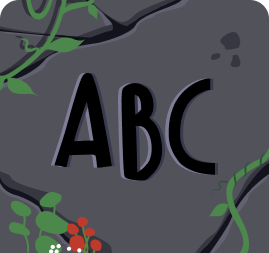
Explore the fun with Capital Alphabets! Practice and memorize capital letters through tracing with engaging visuals that make learning fun and entertaining.
ARABIC APLHABET TRACE:
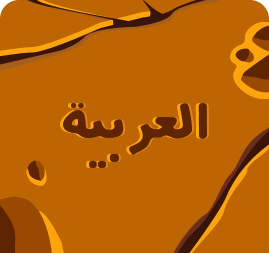
Discover the world of the Arabic Letters! Trace the letters, listen to their pronunciations, and memorize them with entertaining animations.
NUMBER TRACE:
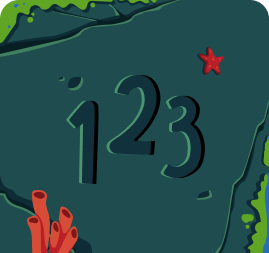
All set to have fun with numbers? Trace numbers on the screen and watch them come to life, reinforcing counting and number recognition skills.
SHAPE TRACE:
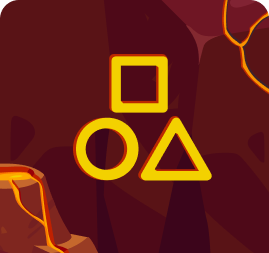
Explore the different shapes hands-on! Learn to recognize and trace different shapes with your hand, bringing each shape to life as you outline it.
These Wondergames are ideal for children with ADHD, helping them learn faster, grow smarter, and thrive in their worlds – all while having unlimited fun!
Visit Our Website For More Information: https://www.wondertree.co/treatment-for-childhood-adhd/
FAQs:
How to handle a child with ADHD without medication?
To handle a child with ADHD without medication, create structured routines, include regular physical activity and mindful practices like yoga and meditation, use positive behavior with them, and take help from educational tools like WonderTree’s interactive games. Build a supportive and encouraging environment to help them grow smartly.
How to discipline an ADHD child?
To discipline a child with ADHD, make them follow a structured routine, and use consistent and positive behavior with clear expectations. Reward them for good behavior, address issues calmly, and avoid giving harsh punishments. Regularly explain rules to them for enhanced understanding and cooperation.
What are non-medication treatments for ADHD children?
Non-medication treatments for children with ADHD include behavioral therapies, structured routines, regular mindful practices, diet, and incorporating education online interactive games. Online games like Wondergames can improve motor and cognitive skills in children with ADHD.
Can a child outgrow ADHD?
While ADHD is considered a life-long condition, some children may outgrow or experience a reduction of certain symptoms as they mature like hyperactivity or impulsivity. Effective strategies can help them adapt as they grow older, reducing ADHD’s impact over time.
What age is hardest for kids with ADHD?
The elementary years ( ages 7-12) are considered the hardest period for children with ADHD, as children face more challenges academically and socially. Effective strategies and supportive routines can help children with ADHD manage ADHD symptoms.
At what age is ADHD at its peak?
ADHD symptoms often peak between ages 6-12, especially symptoms like impulsivity and hyperactivity. As children become mature, effective strategies on how to cope with ADHD symptoms become important.







